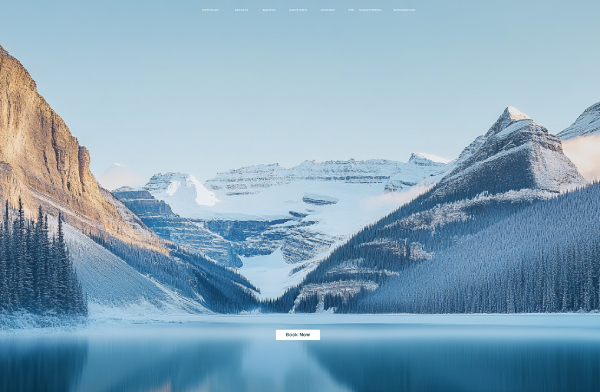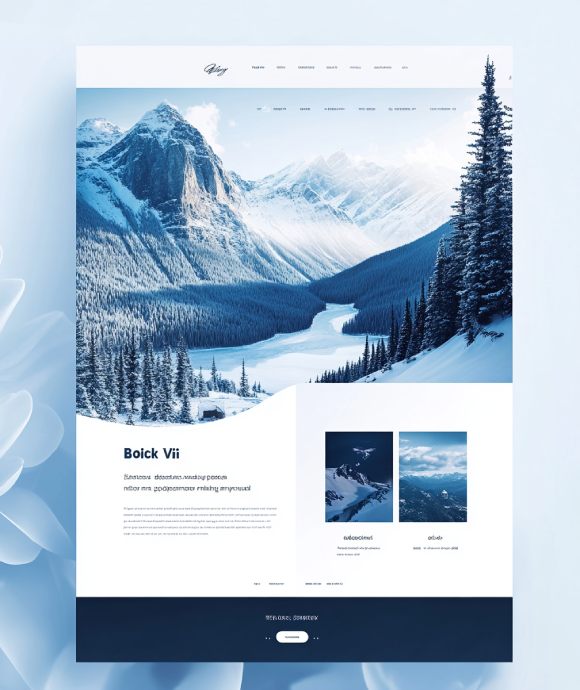What are the key features my travel agency website should have?
Your travel agency website should include features like a user-friendly booking system, a destination guide, an itinerary planner, customer reviews, an easy-to-navigate layout, mobile responsiveness, and a secure payment gateway.
How can I improve the user experience on my travel agency website?
To improve user experience, ensure fast loading times, intuitive navigation, clear calls-to-action, high-quality visuals, and a mobile-friendly design. Conduct usability testing to gather feedback and make necessary adjustments.
What role does SEO play in my travel agency website design?
SEO is crucial for increasing visibility on search engines. Implement SEO best practices, including keyword optimization, meta tags, alt text for images, and a blog with relevant content to improve your site's ranking.
How can I make my travel agency website stand out from competitors?
Utilize unique design elements, high-quality images, engaging content, and personalized services. Consider integrating customer testimonials, travel stories, and a blog to connect with your audience on a personal level.
What is the importance of mobile responsiveness for travel agency websites?
Many users book travel on mobile devices, so a responsive design ensures that your website is accessible and functional across all devices. A mobile-friendly site enhances user experience and can improve your SEO rankings.
How can I effectively showcase travel packages on my website?
Use visually appealing layouts with clear descriptions, pricing, and benefits of each package. Implement filters to help users find relevant packages quickly and consider using high-quality images or videos to enhance appeal.
What are common design mistakes that travel agencies make?
Common mistakes include cluttered layouts, slow loading speeds, poor mobile optimization, lack of clear calls-to-action, and inadequate information about services. Avoid these pitfalls to create a more effective site.
How can I ensure my travel agency website is secure for online transactions?
Implement SSL certificates, use secure payment gateways, regularly update your website software, and comply with data protection regulations. Display trust signals, such as security badges, to reassure users.
What is the best way to integrate booking systems into my travel agency website?
Choose a reliable booking engine that can be easily integrated with your site. Ensure it is user-friendly, offers various payment options, and provides real-time availability. Test the integration thoroughly before launch.
What type of content should I include on my travel agency website?
Include informative content such as travel guides, destination highlights, tips for travelers, customer testimonials, and blog posts. Engaging content helps establish authority and improves SEO.
How can I improve the loading speed of my travel agency website?
Optimize images, reduce server response times, leverage browser caching, and use a content delivery network (CDN). Regularly monitor and test your site’s speed using tools like Google PageSpeed Insights.
Is it important to have a blog on my travel agency website?
Yes. A blog can enhance your website's SEO, provide valuable information to customers, and showcase your expertise in travel. Regularly updated content helps keep your audience engaged and encourages repeat visits.
What are the best practices for designing a travel agency website?
Focus on clean design, intuitive navigation, compelling visuals, and fast loading speeds. Ensure your site is optimized for SEO and mobile devices and regularly update content to keep it fresh and relevant.
How can I handle customer inquiries effectively through my website?
Implement a live chat feature, provide clear contact information, and create a comprehensive FAQ section. Ensure timely responses to inquiries to enhance customer satisfaction and trust.
What is the significance of customer reviews on a travel agency website?
Customer reviews build trust and credibility. Positive testimonials can influence potential customers’ decisions, while constructive feedback can help you improve services and address any concerns.
How can I effectively manage content updates on my travel agency website?
Use a content management system (CMS) that allows for easy updates. Schedule regular content reviews and ensure your team is trained to add new information, special offers, and travel updates efficiently.
What are the current design trends for travel agency websites?
Current trends include minimalistic designs, immersive visuals (like videos and virtual tours), personalization features, and eco-friendly messaging. Staying updated with trends can help keep your website fresh and engaging.


